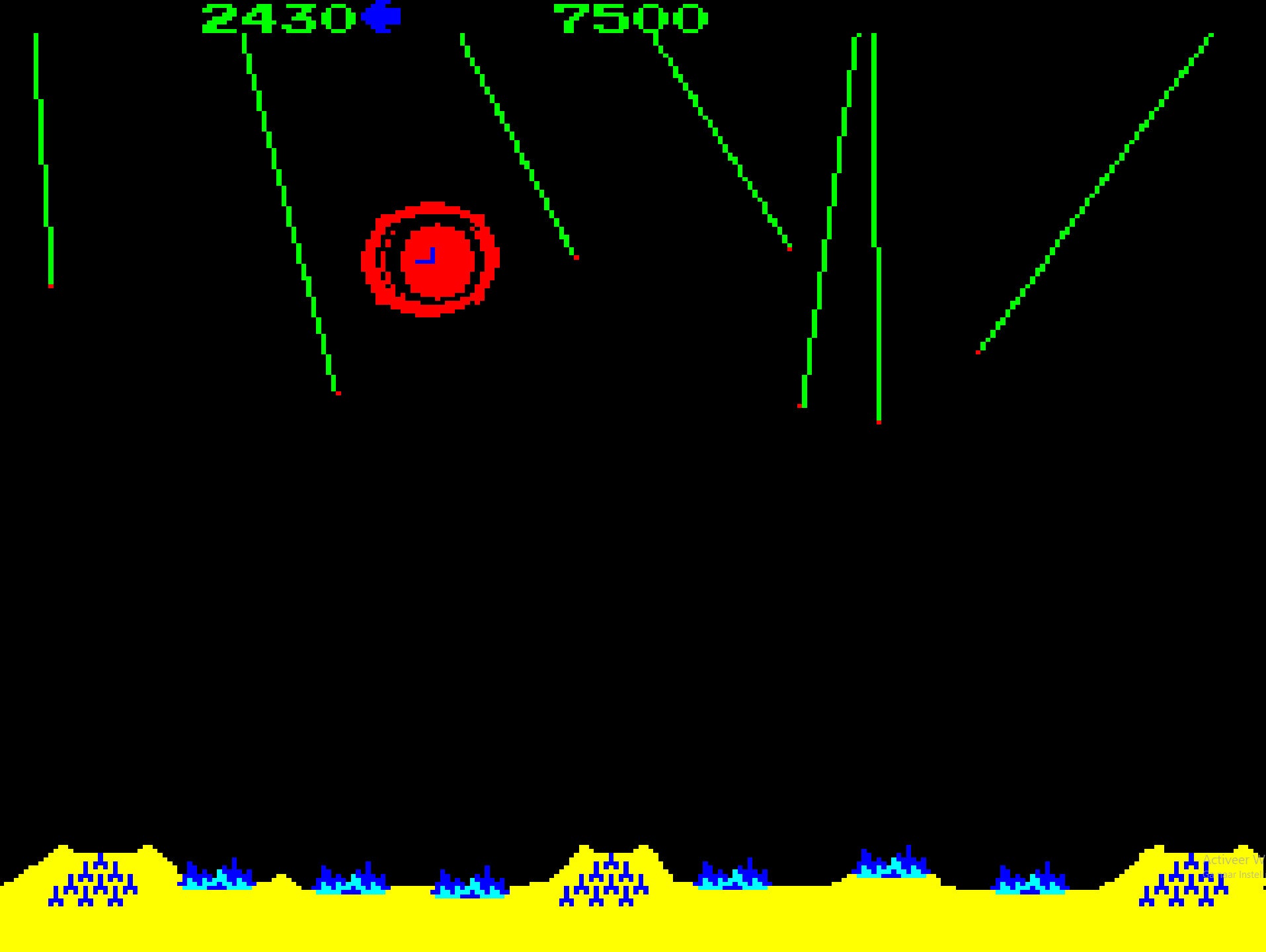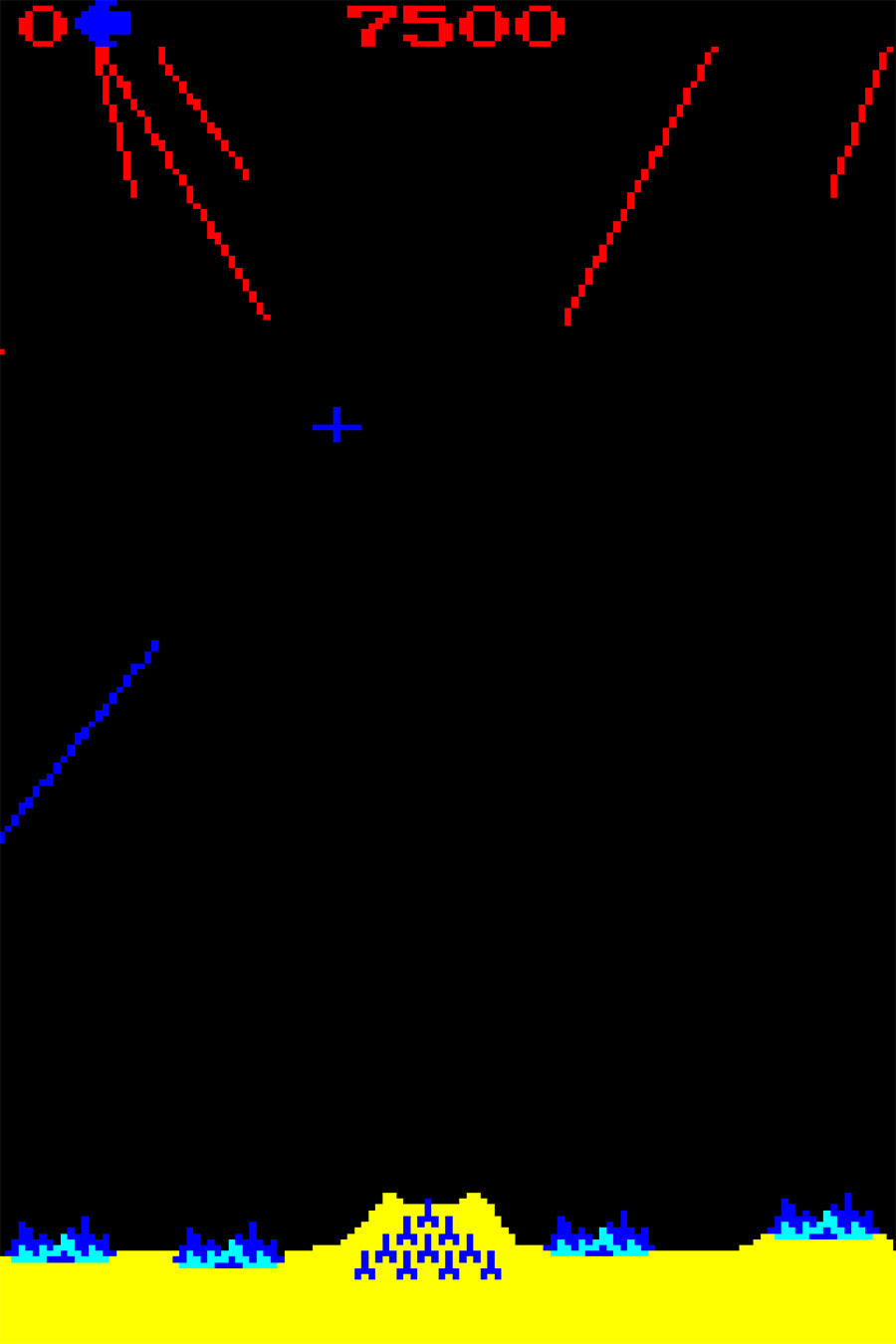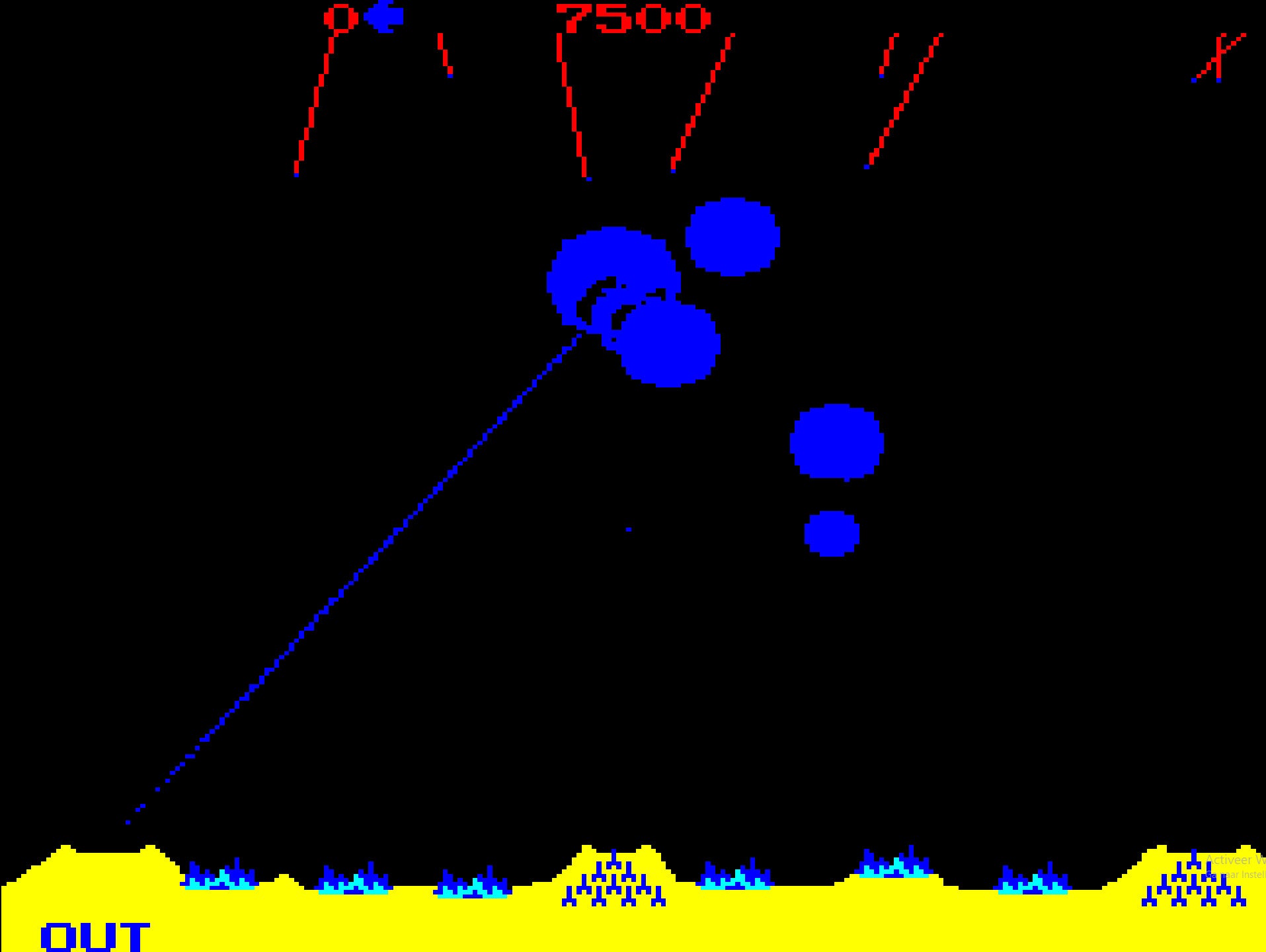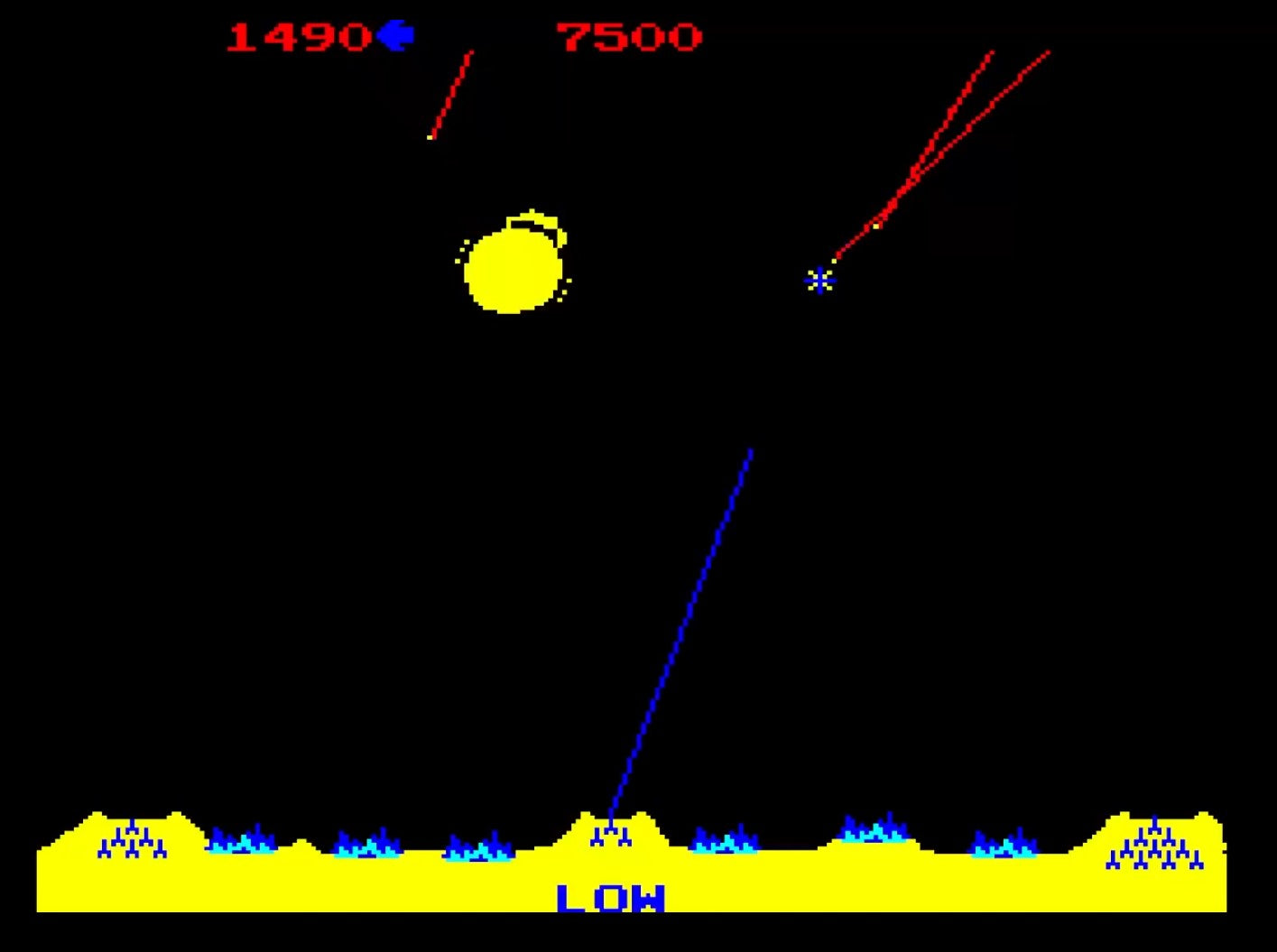Introduction
Released in 1980 by Atari, Missile Command is one of the most iconic arcade games of its era. Known for its innovative gameplay and captivating theme, the game quickly became a staple in arcades worldwide. Set during a time of intense global tension, Missile Command tasked players with defending their cities from an onslaught of missiles. Its simple yet addicting mechanics made it a huge hit, and it continues to be a classic that is enjoyed by retro gaming enthusiasts today.

History and Development
Missile Command was developed by Atari, one of the leading companies in the golden age of arcade games. The game was designed by Dave Theurer, whose previous work included the creation of the famous Tempest arcade game. Missile Command was inspired by the growing tensions of the Cold War, and its gameplay was a reflection of the fear of nuclear war and the responsibility of defending one’s country.
The game was released in 1980 and became an instant success, quickly becoming one of Atari's top earners in arcades. It was later ported to various home systems and has had several sequels and remakes over the years, ensuring its legacy lives on.

Missile Command Gameplay Video
Gameplay and Objectives
In Missile Command, players are tasked with defending six cities from an incoming barrage of missiles, bombs, and other projectiles. Using a trackball to control the launch of counter-missiles, players aim to destroy the incoming threats before they reach their cities. The game is known for its increasing difficulty, with the screen becoming more chaotic as the game progresses.
Key Gameplay Features:
- Trackball Control: The game uses a trackball to control the missile defense systems, allowing for precise aiming and quick reflexes. Players launch missiles from three missile sites at incoming enemy projectiles.
- Cities to Protect: Players must defend six cities on the screen, with each city representing a set number of lives. If a city is hit by an enemy missile, it is destroyed, and the player loses one of their lives.
- Increasing Difficulty: As players advance, the game speeds up and the number of incoming missiles increases, making it more difficult to keep up with the defense.
- Nuclear Bombs: As the game progresses, special power-ups in the form of nuclear bombs can be used to wipe out all enemy missiles on the screen. These bombs can only be used once, so timing is crucial.
- Bonus Points: Players can earn bonus points by successfully protecting all their cities in a round or by using the nuclear bombs strategically.
Tip for Players: Focus on protecting the cities with the fewest remaining defenses. Prioritize incoming missiles and use your nuclear bombs wisely for maximum impact.

Unique Features and Gameplay Mechanics
Missile Command stands out for its combination of strategic thinking, fast reflexes, and increasing difficulty. Its combination of defense mechanics and escalating threats creates a highly engaging and addictive gameplay loop that makes players want to keep playing, aiming for higher scores.
Key Innovations:
- Trackball Mechanics: The trackball controller allowed for highly responsive and precise missile launching, a rarity at the time of its release and one of the game’s standout features.
- Tension and Strategy: The balance between fast action and strategic defense is a key element of Missile Command. Players must think quickly while also making decisions about which cities to defend and when to use the limited nuclear bombs.
- Real-Time Threats: Unlike many other games of its era, Missile Command presents real-time threats with little downtime. The missiles appear on the screen and need to be dealt with quickly.
Legacy and Impact on Arcade Gaming
Missile Command is one of the defining games of the early arcade era, influencing many games that followed. Its combination of action and strategy created a unique experience that was both engaging and tense. It has been recognized as one of the best arcade games of all time and continues to be a part of retro gaming collections.

Deepdive video on Missile Command
Fun Facts
- Cold War Inspiration: Missile Command was inspired by the fear of nuclear war during the Cold War, which is reflected in its gameplay theme.
- Trackball Innovation: The game was one of the first to use the trackball controller, setting it apart from other arcade machines of the time.
- Cultural Influence: Missile Command was a favorite of many in the early 80s, with its addictive nature and social competition fueling its popularity.
Conclusion
Missile Command is a timeless classic that represents the golden age of arcade games. Its blend of fast-paced action, strategic thinking, and innovative gameplay mechanics makes it a must-play for retro gaming fans. Whether you’re revisiting this iconic arcade machine or playing it for the first time, Missile Command offers an unforgettable experience that continues to capture the attention of gamers around the world.
Explore More
Love classic arcade games? Check out our guides on Space Invaders, Asteroids, and Galaga to discover more legendary arcade experiences!
Check Atari's article on Missile Command for more information about this arcade.
Questions you might have:
What is Missile Command arcade?
Missile Command is a classic arcade game released by Atari in 1980. It places players in the role of a commander tasked with defending cities from incoming ballistic missiles during the Cold War era.
How do you play Missile Command?
In Missile Command, players use a trackball and buttons to control a crosshair on the screen. The objective is to intercept and destroy incoming enemy missiles before they hit and destroy your cities. You have a limited supply of anti-missile missiles, so strategic planning and timing are crucial.
What is the objective of Missile Command?
The primary objective is to protect your cities from being destroyed by enemy missiles. As the game progresses, the difficulty increases as more missiles are launched simultaneously and at faster speeds. The goal is to survive as long as possible and achieve a high score.
Are there different levels in Missile Command?
Yes, Missile Command consists of multiple levels, or waves, each with increasing difficulty. As you advance, enemy missiles become more numerous and faster, requiring quicker reflexes and strategic placement of your anti-missile missiles.
Was Missile Command influenced by real-world events?
Yes, Missile Command was released during the Cold War era, and its theme of defending cities from nuclear attack reflected the anxieties of the time. The game tapped into the fears of nuclear war and global tensions, making it more than just a game but a cultural reflection of the era.

